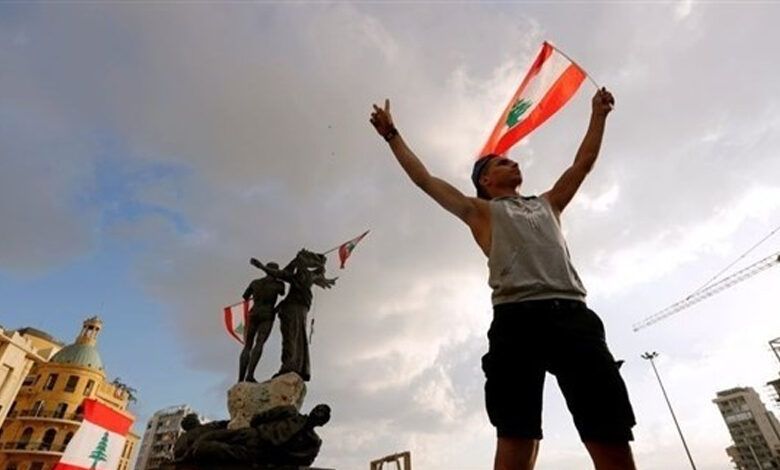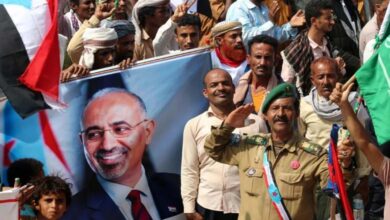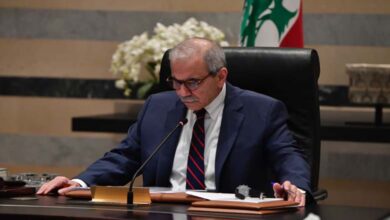Lebanon is facing a new vacancy that plunges it into a vortex of financial and functional turmoil

The leadership crisis reflects the divisions among the ruling elite, which has been unable to agree on a president or a fully empowered government for over a year
The impending vacancy in the leadership of the Central Bank puts Lebanon on the verge of potential financial, social, and political disruptions as the term of Riad Salameh, who is supposed to leave his position soon, ends without the existing authorities managing to appoint his successor due to constitutional reasons and disagreements among the political forces.
Lebanon’s Central Bank faces a state of uncertainty as of next Monday when Salameh steps down without a successor being appointed, heralding a new functional disorder in a country already suffering from political paralysis and financial collapse for years.
Salameh leaves his position after spending 30 years, and his reputation has been tarnished due to the catastrophic financial collapse that started in 2019 and accusations of corruption against him in France, Germany, and Lebanon, despite his denial of any wrongdoing.
The leadership crisis reflects the divisions among the ruling elite, which has been unable to agree on a president or a fully empowered government for over a year, exacerbating the financial crisis with no significant efforts to address it since 2019.
The cabinet was supposed to meet yesterday, Thursday, to choose Salameh’s successor, but the meeting was canceled due to political disputes, with no long-term solution in sight.
Under Lebanese law, the oldest deputy of Salameh, Wassim Mansouri, is supposed to replace him temporarily, but he and the three other deputies will only accept it reluctantly and will press for political guarantees.
Mansouri and three other deputies proposed a set of measures to reform the banking sector urgently, including legislation to control capital and eliminate the pegging of the Lebanese pound to the US dollar, a practice that has been in place for decades.
However, the political elite has resisted reform measures in the past few years, casting doubt on the steps proposed by the Central Bank’s deputies for the future.
The new leaders of the Central Bank will have to deal with a financial system gap valued at over $70 billion and uncertain political support in a deeply divided country with intense public anger over the squandering of national and private wealth.
For Lebanon, this means that another major position will remain officially vacant, held hostage to the collapse of a political system based on power-sharing among religious sects, which has already led to chaos in most government functions.
Prime Minister-designate Najib Mikati and Parliament Speaker Nabih Berri attempted to reach an agreement this week after months of no progress in finding a successor to Salameh.
However, the Shia militant group Hezbollah and its Christian ally, the Free Patriotic Movement, both part of the ruling coalition government, reject these steps, stating that the caretaker government does not have the authority to make an appointment decision. The Cabinet meeting was suddenly canceled yesterday, Thursday, due to the absence of ministers associated with these two parties.
The position of the Central Bank governor, like the vacant presidency, is traditionally held by a Maronite Christian. The Free Patriotic Movement accused Mikati of trying to take over the president’s powers by attempting to appoint a governor by the Cabinet, while this authority belongs to the President.
Last month, Mansouri and the three other Central Bank deputies threatened to resign if forced to take over the position. They want powers to lend more money to the government if needed and the gradual elimination of a complex exchange platform for the Lebanese pound, which has depreciated significantly.
Mikati met with the Central Bank deputies yesterday, Thursday, and his office said that he considers their demands legitimate, and their proposals are in line with the government’s plan, in an apparent attempt to keep them on board.
However, it is unclear whether Mikati can implement these changes amid the political deadlock in Lebanon. Mansouri refrained from commenting, but another deputy, Salim Shahin, said that he expects Mansouri to assume control of the Central Bank starting next week.
The financial expert in Lebanon, Mike Azar, said that the Central Bank deputies are in a dilemma, considering, “the question is whether they will do the right thing and act independently as the law allows them, even in the face of undoubtedly intense political pressures.”
Central Bank Governor Riad Salameh told Reuters today, Friday, that the Central Bank can still contain the financial collapse in the country through “cash initiatives” even after his term ends at the end of this month.
Salameh (73 years old) has pledged to step down when his term ends on Monday. His term has recently been marred by the severe economic collapse and accusations in Lebanon and abroad of embezzling large sums of public money in Lebanon.
He defended himself, saying that he acted in accordance with the law, and his lawyers filed legal challenges in France and Germany, where he was accused. He added, “At the time of my departure and despite the crisis expected to lead to a complete collapse, the Central Bank can contain this crisis through cash initiatives.”
He stated that the Lebanese economy achieved a growth rate of two percent last year and may grow to around four percent in 2023, but he did not provide further details on specific criteria.
The collapse drained 98 percent of the value of the Lebanese pound, and the Gross Domestic Product (GDP) shrank by 40 percent, pushing inflation to over 250 percent, according to the International Monetary Fund.












